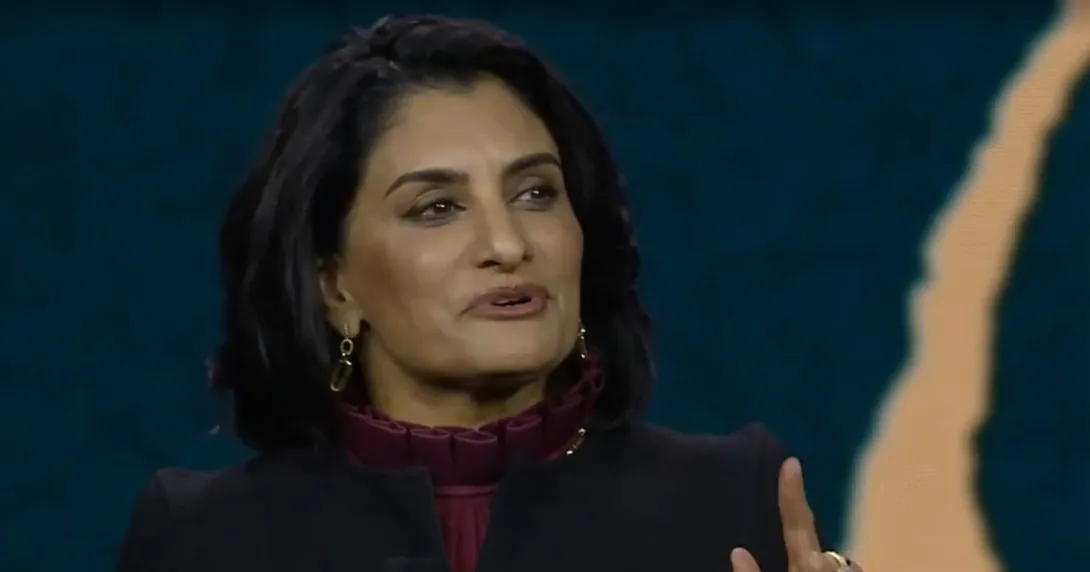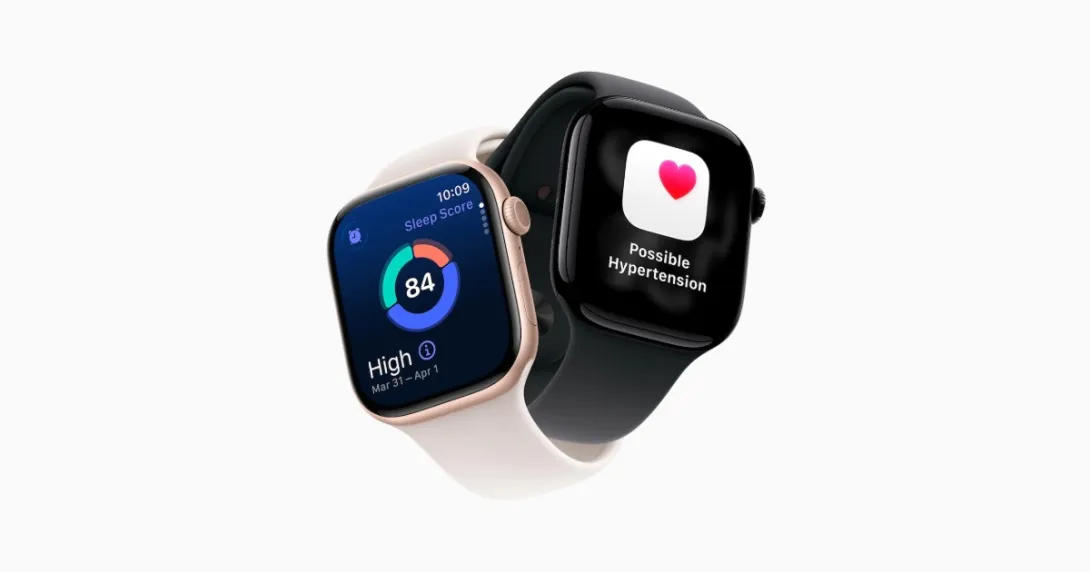
Seema Verma, EVP and GM of Oracle Health and Life Sciences, delivered a keynote address at the 2025 summit on Sept. 10 in Orlando, Florida.
Photo: Screenshot from Oracle Health and Life Sciences Summit broadcast
Among several other new product announcements, Oracle Health said Wednesday at its Oracle Health and Life Sciences Summit in Orlando, Florida, that it has integrated generative artificial intelligence into its patient portal, giving healthcare consumers richer access to their medical data.
The company is introducing other AI-driven products, including an autonomous reimbursement platform and an agentic electronic health record system driven by ambient listening.
It also announced at the summit the launch of its new Oracle AI Center of Excellence for Healthcare, designed as a hub of expertise and resources for hospitals and health systems deploying AI technologies. The CoE offers secure cloud environments for AI testing and guidance on building AI systems, aligning efforts with regulatory and compliance requirements, and managing organizational change.
Putting AI into action
"Oracle is working to completely reimagine patient engagement through our new portal, giving patients access to their complete medical record and putting the power of AI in their hands," said Seema Verma, executive vice president and general manager of Oracle Health and Life Sciences, in her opening keynote at the summit.
Through integrated generative artificial intelligence, patients can now ask questions like "What were the results of my latest labs?" directly within Oracle Health's patient portal, according to Oracle.
While the company is showcasing its new AI-enabled ambulatory EHR, which was unveiled last month, Verma said the company's acute care EHR is also in development and should be introduced next year.
Other new Oracle Health product introductions include an autonomous reimbursement platform that begins its work in the EHR and an AI-driven life science platform that makes use of 120 million patient records, including genomic data, which Verma said could take friction out of the healthcare system and connect more patients to more personalized care.
Using AI in reimbursement can help verify benefits, give patients a clear estimate of cost, help ensure accurate coding and allow provider organizations to "see denials coming," correcting errors before claims are submitted, she noted.
Still, said Verma, "to put AI in action, to truly solve these problems, we must first heal our relationship with data."
Too many healthcare AI models are trained on old data, she said.
"This AI repeats the mistakes of the past, which means it's taking historical inaccuracies and biases, racial biases, gender biases and presenting them as truth," Verma explained. "It keeps doctors and patients in the dark about the latest cures and scientific advances.
"The Oracle differentiator is that our database allows the AI to work off of live evergreen data," she added, noting that its semantic database was built for AI and understands many types of data and can map its relationships across different healthcare domains.
"And now it's here," she said.
With Oracle's health applications, doctors can use coordinated ambient AI agents to create summaries of medical histories with citations and approvals, handle prior authorization requests, and send out prescriptions and lab orders, she said.
In a recent KLAS report, Oracle Health 2025, providers said they were encouraged by the company's Clinical AI Agent and reported optimism about the EHR's new AI features, despite generally mixed reviews of its recent track record.
The new Oracle EHR, billed as an immersive, cloud-based platform designed to optimize workflows and reimagine clinician experiences, is "voice-first," Verma explained.
"The AI listens ambiently as the conversation unfolds, it proposes the right billing code, the right lab, the right medication on what's covered by the payer, and even identifies clinical trials that the patient qualifies for."
Calling the AI knowledge layer "Oracle's secret sauce," she noted that it offers healthcare providers the power to capitalize on their innovations.
"Physicians can develop and monetize their own proprietary pathways with providers all over the world," she said. "Maybe a protocol to treat diabetes or a new way to triage patients in the ER; Oracle is just a chassis for sharing best practices around the world."
Added atop a foundation composed of Oracle's Cloud Infrastructure and its developing national interoperability network, the company is better positioned than its competitors to put AI into action in healthcare, Verma said.
At the mercy of poor data access
Verma noted that "patients experience the entire system," and that challenges with data quality and ease of access can make for a suboptimal healthcare experience.
To illustrate this, Verma introduced Michelle Brown, a neighbor and personal friend, to describe her 15-year experience navigating the healthcare ecosystem for her son Aiden's pediatric cancer care.
There are "so many pieces of things to manage on any given day," Brown told Verma. "There was insurance, and billing and coding errors and getting sent to collections.
"You were inpatient, and you were outpatient, and you were chemo and you were addressing changes, and you were trying to plan a couple of months ahead for surgeries. … I want to hold my kid, I don't want to be filling out forms," she added.
Brown also described her luck in accessing a second clinical trial for Aiden when conventional treatments were not working through local networking. Statistics show that Aiden is a one-in-two-million case, she said.
When addressing a relapse of Aiden's neuroblastoma, the act of "racing against the clock" to get a Mayo Clinic surgeon the scans he needed to plan a very difficult surgery seemed an unnecessary plight for the Brown family.
Past scans "should not be locked up somewhere where he can't get to them, where I can't get to them, where the doctor that needs them can't get to them," she said.
Though Aiden ultimately received a "perfect" surgery, the process of getting to that point "was really broken."
Verma also asked Brown about her family's experience bringing medical records from one place to another. Brown said they created a system of spreadsheets to track Aiden's labs, side effects and symptoms to look for patterns. That data became important during relapse.
Aiden is now in his first year of college, a four-time cancer survivor. Brown said she is concerned that "his data is everywhere" and he's 2,000 miles away from her now.
AI-powered patient portal
Oracle's new technologies aim to help address ongoing patient access challenges like those, said Verma. For instance, with AI handling lower acuity care in a patient portal, it could free up health system capacity and reduce the friction that delays patient care, she said.
Verma noted several new AI capabilities that could help patients better understand their medical records. With an AI-enabled patient portal, they'll be able to ask questions, get explanations about medical jargon, translate complex diagnoses and clarify test results.
New features also give patients access to other generative AI tools, which they can use to prepare for doctors' visits, draft messages to their care teams and schedule follow-up appointments.
The new patient-facing features rely on OpenAI's models, though no personal health data is stored by them, according to Oracle.
Verma said AI transparency sets Oracle Health AI apart from its EHR competitors. Text generated is marked with sources cited, she noted.
"Remember in math class, where just giving the answer wasn't good enough; you also had to show your work? That's what Oracle AI does."
Andrea Fox is senior editor of Healthcare IT News.
Email: afox@himss.org
Healthcare IT News is a HIMSS Media publication.


